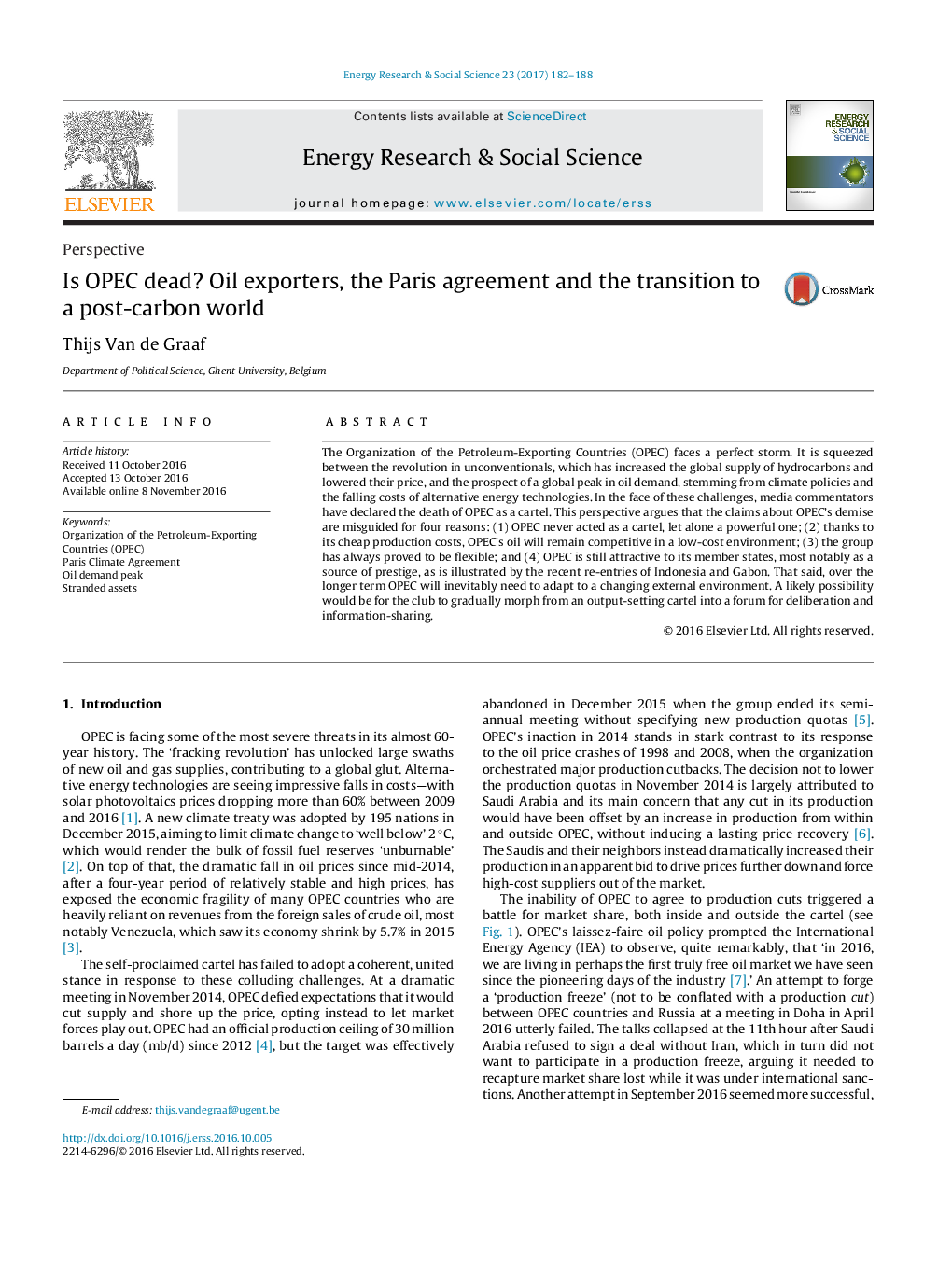| Article ID | Journal | Published Year | Pages | File Type |
|---|---|---|---|---|
| 6464074 | Energy Research & Social Science | 2017 | 7 Pages |
The Organization of the Petroleum-Exporting Countries (OPEC) faces a perfect storm. It is squeezed between the revolution in unconventionals, which has increased the global supply of hydrocarbons and lowered their price, and the prospect of a global peak in oil demand, stemming from climate policies and the falling costs of alternative energy technologies. In the face of these challenges, media commentators have declared the death of OPEC as a cartel. This perspective argues that the claims about OPEC's demise are misguided for four reasons: (1) OPEC never acted as a cartel, let alone a powerful one; (2) thanks to its cheap production costs, OPEC's oil will remain competitive in a low-cost environment; (3) the group has always proved to be flexible; and (4) OPEC is still attractive to its member states, most notably as a source of prestige, as is illustrated by the recent re-entries of Indonesia and Gabon. That said, over the longer term OPEC will inevitably need to adapt to a changing external environment. A likely possibility would be for the club to gradually morph from an output-setting cartel into a forum for deliberation and information-sharing.
